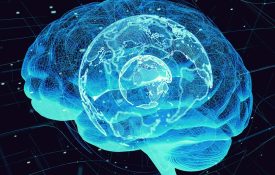-

Creating a Global ‘BRIDGE’ for Brain Research Data
The Brain Research International Data Governance & Exchange (BRIDGE) project aims to create a responsible and sustainable governance system for data sharing. Learn how the group is advancing open practices, reproducibility, and psychological science as a whole.
-

Repeated Exposure to News Headlines Makes Behavior Seem Less Unethical
From frequent smartphone notifications to repetitious TV news programs, we often experience repeated exposure to various news headlines as we go about our daily lives. When the news provides stories of wrongdoing, that repeated exposure may influence our own sense of morality, making those narratives seem more true and less unethical.
-

The Bad-Behavior Blend
“The one gene, one disease idea is a thing of the past.” Scientists aren’t simply trying to identify people who are innately predisposed to incivility, immorality, or lawlessness. They’re examining how parenting, education, and other life experiences trigger those biological leanings.
-

New Content From Perspectives on Psychological Science
A sample of articles on climate change and substance-use behaviors, using reality checks to assess heterogeneity, using an ethics and social-justice approach to collecting and using demographic data, and much more.
-

Artificial Intelligence: Your Thoughts and Concerns
APS members weigh in on the biggest opportunities and/or ethical challenges involving AI within the field of psychological science. Will we witness vast and constructive cross-fertilization—or “a dystopian cyberpunk corporation-led hellscape”?
-

I, Psychologist: Exploring the Ethical Hurdles and Clinical Advantages of AI in Healthcare
Patients are often resistant to the use of artificial intelligence in healthcare. But AI-assisted care could usher in a new era of personalized medicine.

